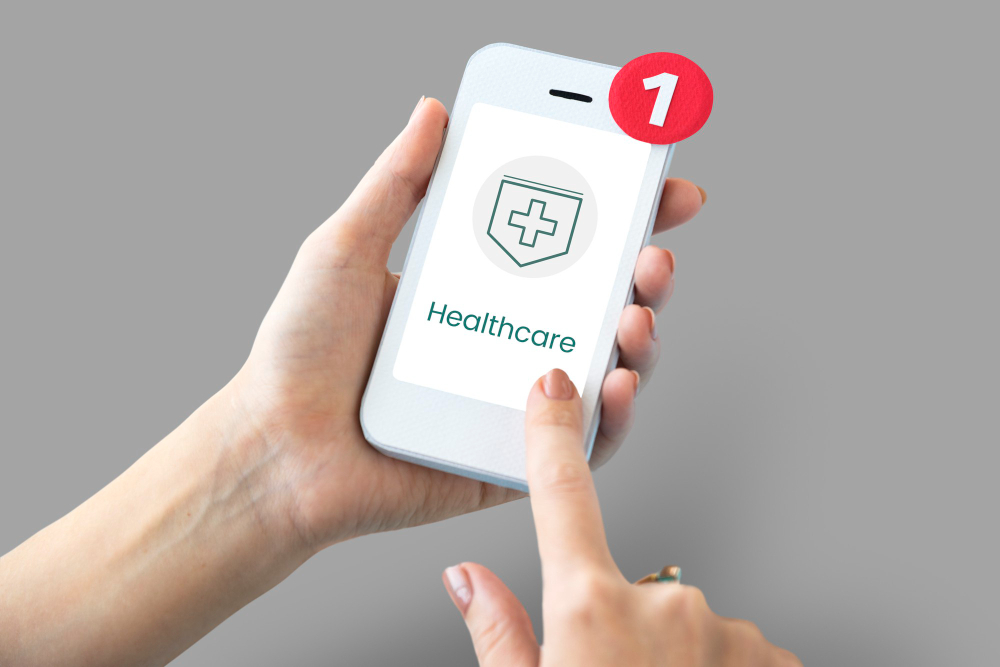If you are considering mobile apps for your private practice, you just might be onto something. Nowadays, every healthcare conglomerate and hospital system has its own app or digital tools for patient management and care. And then there are the tools that they use for running the practice or hospital, including EHRs, patient portals, and insurance billing systems that require special training to navigate.
While the growing availability of apps is helping the healthcare industry, it’s also creating a lot of room for private practices to reach the level of major healthcare systems because they can get engaged with the same types of apps. The barriers are no longer present—while budgets may still be restrictive, every medical business has access to a host of apps and tools today and the only thing keeping them from utilizing them is a matter of choice.
If you want to improve your practice operations, deliver a better patient experience, or just embrace technology for all of its benefits, mobile apps are the perfect solution.
What Can Mobile Apps Do?
Mobile apps can do a lot more than they often get credit for. Even a decade ago, we might not have imagined the robust EHR and patient management apps available today. And yet, there’s still so much more potential to be found. Your clinic can use mobile apps to manage patient records, track care, get test results, prescribe medications and change prescriptions, manage insurance and billing, and so much more.
Separately, you can create apps for patient engagement that include patient health records, insurance information, contact information, and other details. It can include an appointment scheduler, a messaging system to reach out to you or your nurses, and other elements. Plus, you can find several apps that are plug-and-play, meaning you can simply implement your specific practice information and start using the apps right away.
Mobile apps make care more accessible and provide better communication and connectivity for providers. They ensure that whether there is a computer, a tablet, or even just a smartphone, providers always have access to patient records and practice information, and patient apps do the same for patients. This is why they are becoming so popular.
Management Apps vs. Patient Apps
The biggest difference in apps for private practice medical providers is whether the apps are for practice management or patient use. Both tools have a place in your practice, but you’ll have to choose appropriate tools for each separate area. For example, while a platform might be perfectly designed for mobile practice management, it might not be a patient-centric app, so you’ll need to find one of those, as well. If you can find tools that all work together, that’s even better because it streamlines your business and keeps information connected across all areas of the practice.
Management apps will handle things like scheduling, billing, charting, insurance, and other elements of running your practice. They will allow you to keep and monitor patient records, track appointments, monitor medications and tests, and more. They can be customized to the needs of your practice or used out of the box, depending on what you have in mind.
The Benefits of App Technology
When it comes to utilizing apps for your private practice, there are several benefits to be found. Using apps makes it easier to stay connected with patients and keep everyone on the same page. It also offers a simple, quick access interface for your patients so that they can access their health information on the go, as long as they’ve got a device with an Internet connection.
Mobile health apps, especially those that offer access to patient electronic health records (EHRs), are enabling faster, easier access to patient health information and potential issues, that leads to an increased ability to make informed medical decisions promptly. It also helps patients feel more engaged, which likely creates situations where they are more engaged in their healthcare.
Mobile health apps can reduce the risk of preventable medical errors and documentation issues. They can also reduce costs for patients and providers alike, improve communications and reduce barriers to care, encourage patient engagement, and a healthy lifestyle.
Apps exist that are ready to go, or you can have custom apps developed for your practice or your patient network, giving you the chance to truly customize the experience that you deliver.
The Case for ClinicMind Software
ClinicMind is an asset that is going to change the way that you think about mobile apps and healthcare technology. This platform offers a robust EHR/RCM system, along with all the features and tools that you need for total practice management. There are solutions for credentialing and insurance approvals, as well as support for revenue cycle management so that you can keep your practice billing streamlined and organized at all times. ClinicMind also includes mobile access so that you can focus on delivering high-quality patient care without having to worry about where you’ll be when you need to pull up records.
Private practices can use ClinicMind software to follow up on their claims and insurance billing processes, as well as patient co-payments and other financial elements. This platform can manage all of the business aspects of your practice for you so that you can focus more on your patients and their needs. And since it’s accessible through an app and desktop devices, it’s perfect for the growing practice and medical professionals on the go.
Conclusion
Technology is changing the way the world works, one app at a time. Mobile health apps, including EHRs, practice management apps, and other tools, are growing in popularity because they offer streamlined access to patients and providers alike. They also make managing care easier and provide better opportunities for patients to manage their appointments, medications, and overall care. If you are ready to embrace technology to take your private practice to the next level, contact the team at ClinicMind to find out why they should be among the first apps on your list.


